#Did You Know: The House of Bragança
Explore tagged Tumblr posts
Text












In a revolution in Portugal the monarchy was overthrown and a republic was declared on October 5, 1910.
Portugal Republic Day
Portugal’s Republic Day is celebrated on October 5 every year and is also known as ‘Implantation of the Republic’ in Portugal. This important day marks the overthrow of the monarchy, the House of Braganca, in 1910. The monarchy had been in power since the 11th century and was replaced by a republican form of government in a bloodless revolution. It also brought about civil and religious liberties. It is a public holiday with schools, state offices, and some restaurants being closed. Like other public holidays in Portugal, Republic Day is not moved to a weekday if it falls on a weekend.
History of Portugal Republic Day
Portugal’s Republic Day commemorates the deposition of the centuries-old Portuguese monarchy and the establishment of the First Portuguese Republic. It was the result of a coup led by the “Portuguese Republican Party.”
By 1910, the Portuguese Kingdom was in the middle of a crisis with people increasingly resenting the royal family due to the 1890 British Ultimatum which demanded the retreat of the Portuguese military forces from the territory between the colonies of Angola and Mozambique, the royal family’s expenses, the assassination of the King and his heir, transforming religious and social views, instability of political parties, Joao Franco’s dictatorship, and the regime’s inability to adapt to modern times. This national anger helped proponents of the Republican Party to take advantage of the situation. The party skillfully presented itself as the only one capable of returning the country to its original glorious status and advancing its progress.
The military was reluctant to fight the nearly two thousand soldiers and sailors that rebelled between October 3 and 4, and so the Republic was proclaimed the next day from the Lisbon City Hall. A provisional government led by Teófilo Braga led the country till the Constitution was approved, marking the beginning of the First Republic. National symbols like the national anthem and the flag were changed, along with some changes in civil and religious liberties.
The deposed King Manuel II departed from Ericeira and lived out the rest of his days in exile. At the time, Portugal was worried about being recognized by other countries as most European states were monarchies. But soon enough, through skillful diplomacy by the Foreign Affairs Minister, the country was officially recognized by the United Kingdom, France, China, Spain, Italy, Russia, and others.
Portugal Republic Day timeline
1143 Treaty of Zamora
Afonso Henriques — also known as Afonso I —is proclaimed the First King of Portugal.
1500 The Discovery of Brazil
Pedro Álvares Cabral sets sail seeking to reach India but a storm changes his course and he lands in South America.
1908 Regicide
King Charles and his son and heir Prince Luís Filipe of Bragança are assassinated in Lisbon.
1910 The Republic Party Takes Over
The monarchy is abolished and a republican government is formed.
Portugal Republic Day FAQs
What languages are spoken in Portugal?
Portuguese is the common language of the country and is the most widely spoken. English is the second most spoken language as Portugal regularly attracts international visitors from the United States, U.K. as well as the rest of Europe.
Is Portugal expensive to visit?
Portugal is among the least expensive holiday destinations in Western Europe and will set you back around 68 to 115 euros per person for each day. It’s a great holiday place if you’re looking to make a trip on a budget as it’s much cheaper than many European options.
What food is Portugal known for?
Seafood and pork are popular foods in Portugal. Some of the must-have dishes are bacalhau or salted cod, custard tart, Iberian black pork, duck rice, grilled sardines, steak sandwich, and seafood stew just to list a few. Did you know tempura was actually invented by the Portuguese? Another reason to love this place!
How to Observe Portugal Republic Day
Visit Portugal
Immerse yourself in the culture
Throw a party
Visit Portugal to celebrate its Republic Day and honor the people who struggled to bring about a revolution. Enjoy the celebrations at the Lisbon City Hall, wave the flag, go sightseeing and join in on the fun.
Bring Portugal to you if you can’t visit the country by immersing yourself in its vibrant culture. Read some Portuguese literature, watch some movies and cook some delicious traditional Portuguese food.
Show your national pride by throwing a party to celebrate Republic Day. Light up the sky with some fireworks and remark on the years of effort and struggle that have made the nation it is today.
5 Facts About Portugal That Will Blow Your Mind
It’s amongst the oldest nations in Europe
It’s one of the most peaceful countries
England is its oldest friend
One of the worst disasters
First place to ban life imprisonment
It’s been constantly inhabited since prehistoric times by the Celts, Carthaginians, and Romans just to name a few.
It has a low crime rate, high standard of living, and a high average life expectancy too.
Portugal signed the “Treaty of Windsor” with England in 1386 — which is probably the longest-running alliance between modern nations.
An extremely violent earthquake of a magnitude of 8.5 to nine befell Lisbon in 1755, causing a widespread fire and a huge tsunami that nearly wiped out the city.
It abolished life imprisonment in 1884 and no one has been executed for a crime since 1846.
Why Portugal Republic Day is Important
It marks the overthrowing of the monarchy
National pride
It was a bloodless revolution
The people of Portugal were growing increasingly resentful of the monarchy for various reasons. The revolution finally put an end to it and paved the way for a different form of government.
It’s a great day to show off your pride in being Portuguese. Take this day to immerse yourself in your culture and learn more about the many events that have made Portugal the great nation it is today.
It’s commendable to note that unlike many other coups and revolutions in the region, the event involved no bloodshed. This serves as an important lesson even in today’s day and age that not all revolutions need casualties.
Source
#revolution#republic#declared#5 October 1910#anniversary#Lisbon#Lisboa#Lisbon Cathedral#Portuguese history#Albufeira#summer 2021#Portugal Republic Day#Belém Tower#Atlantic Ocean#Ourique#landscape#cityscape#seascape#Rossio#D. Maria II National Theatre#Igreja de São Paulo#tourist attraction#original photography#São Jorge Castle#travel#vacation#landmark#architecture
0 notes
Photo

Did You Know: The House of Bragança Edition #4
The husbands of D. Maria II of Portugal and Queen Victoria were cousins! And it looks like that wasn’t the only thing that D. Fernando and Prince Albert had in common. ¬‿¬
“In many ways the two cousins were very similar, from their tall and handsome physique and their undoubted prowess in the marriage bed to their meticulous care over the education of their children and their active patronage of the arts and sciences.” (p. 252, The Braganzas: The Rise and Fall of the Ruling Dynasties of Portugal and Brazil, 1640–1910, Malyn Newitt)
#oh I'm certainly going to hell for this one :')#if this actually makes it onto your feed#know that I lost my mind#Did You Know: The House of Bragança#Portuguese history#Portugal#no but in reality Maria II and Queen Victoria were very good friends#they had known each other since they were young girls#they often exchanged letters#and kept photos of each other#D. Maria sent Victoria a bracelet with the portrait of her firstborn Pedro#and Queen Victoria kept Maria's portrait in her closet#soulmate vibes#I'm just saying#maria ii of portugal#queen victoria#my entries
15 notes
·
View notes
Text
Hc’s about the Braganças I have no business having but I do cause I’m bored in the house and i’m in the house bored (aka I have an art history exam tomorrow and I just had to read “they died in good time for there to be no conflict”)
1. they all call each other in the 3rd person - this is a rich people thing over here and it’s so dumb but all the rich old families do it. Basically, they never use singular you for anything. It’s either plural you or - more hilariously - the third person. So Barbie would say something like “Daniel, the boy needs to behave” when talking to him.
2. Leonor and Barbie specially idk you decided they were psd, therefore, they are “tias” in my mind idc
3. Olimpia while learning pt picks up on this and never realizes first person is a thing RIP
4. Vaughn, on the other hand, is a Brit so he’s used to stupid ways to treat people anyways.
5. speaking of Vaughn, there’s this saying that is something like “It’s for Englishman to see” which basically is use to describe overpriced touristy things. All I’m saying is that it’s become a meme to comment that under every single of Barbie’s posts.
6. You know how American uni’s have frat houses and sororities? And you need to pass some dumb tests to get in?? PT unis have that without the cult part aka there’s just dumb tests so you can use this ugly ass thing and say you did it and feel superior and part of it (other than being humiliated by people like a year older than you) is that you have to steal a teaspoon. All this to say Omari and Barbie took pure gold spoons to their thingies I can FEEL IT. their godparent receiving that and just 😬
7. where is their northern wine farm? @barbiebraganca five houses is not enough they need a ridiculous wine farm thanks
8. speaking of farms they 100% own a “vacation farm” in the middle of Lisbon that they never sold when the city started growing cause it’s from like the 18th century and they’re hoes. They also never use it cause it’s probably inconvenient and loud and surrounded by poor people but like - are they gonna give it up? no.
#hshqooc#legit the less important thing i've ever writen in this rp#only evy is tagged cause she's used to my bs the rest of you don't deserve the mistreatment
5 notes
·
View notes
Text
D. Pedro V: probably one of the best ruler that Portugal has ever had
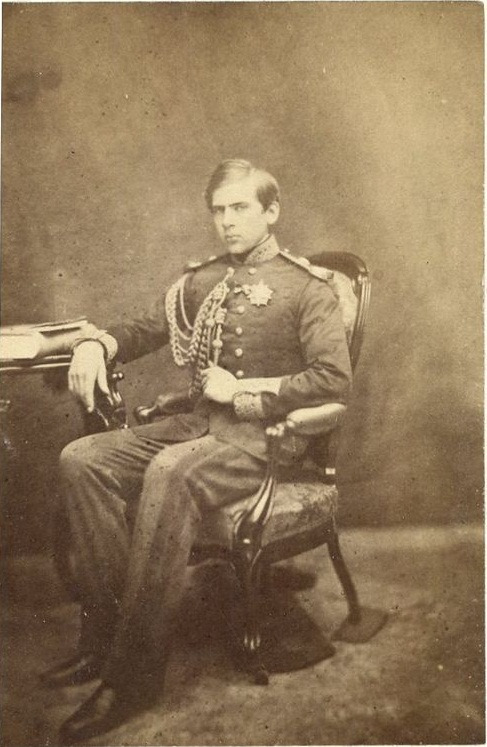
Never had a Crown Prince been so prepared to rule. Educated in a voluntarism notion of governance and for the good of the common thing as a pupil of Alexandre Herculano, as well as in the acquisition of technical, political and cultural skills taught by his father, the King-Artist who promoted the cult of Art, and by the masters contracted by Him. The Royal Princel and Duke of Bragança Dom Pedro fluently dominated French, German, Greek, Latin and English from an early age.
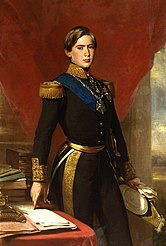
Pedro de Alcântara Maria Fernando Miguel Rafael Gonzaga de Saxe-Coburgo-Gotha and Bragança was still very young when, as a result of the death of her mother at the age of 34, Queen Dona Maria II - during the birth of her 11th child -, ascended to the throne of Portugal with only 16 years old, although His Father D. Fernando II of Saxe-Coburgo-Gotha-Koháry (became King of Portugal jure uxoris, after the birth of the Crown Prince) remained as Regent until the majority of the new King.
Despite being one of the most intelligent monarchs of his time, and the one who worked the most for culture, in Portugal (comparable to King D. Duarte,) it is, for many, almost unknown. During the short years at the head of the Nation, the first kilometers of the Northern railway line - 1856 (Lisbon - Porto) were inaugurated; the Higher Course of Letters was founded (1859); the first telegraph lines were launched (1855); and the first submarine cable began, between Lisbon, the Azores and the United States.

One year after his mother's death, D. Pedro visited England, Belgium, Germany, Holland and Austria, with his brother D. Luís. In 1855, he came into contact with the reality experienced in France, in the kingdom of Naples, in the Holy See and in Switzerland. These trips complemented the valuable teachings of the teachers, among which Alexandre Herculano stands out. In this way, the monarch had an unparalleled knowledge of the art of governing, both in our country and abroad.

D. Pedro V was, in fact, a man of superior intelligence and exceptional culture, as attested by the Diary that he wrote during his travels in Europe, the articles he published in the Military and Contemporary magazines and the letters of great literary value which he sent to the count of Lavradio and to Prince Albert of England.
He was a young man with a very strong and balanced personality, extremely cultured and aware of the responsibilities he had in charge. Unfortunately, he would not have the time or the necessary tranquility to be able to show everything he had to offer the subjects.
The famous Green Box of D. Pedro V
Scruples and a love of the truth led him to take an unprecedented attitude in politics. Oliveira Martins says: “He took so much into account those around him, created so much in them, that he had a green box placed at the door of his palace, whose key he kept, so that his people could speak to him frankly, complain , accuse the crimes of the rulers. ���
They say that he had to withdraw it, because the people or the politicians, instead of asking and complaining, launched insults and insulting words. When you want to give a voice to those who don't have it, the "Democrats" don't like it.

A careful education
D. Pedro V was reputed to be gifted, such as his intellectual abilities and his speed of learning. His great master throughout his life was Alexandre Herculano. At the age of 10, he had D. Maria Carolina Mishisch as his teacher. Martins Basto followed. He learned Latin. With 6 months of study, translates Eutropius and Phaedrus; and at the age of 12, he was able to pour texts by Virgílio, Tito Lívio and Cícero into the his mother language, Portuguese.. Then he learned: painting, philosophy and living languages.
At the age of 17 (1854) he traveled to England, Belgium, Holland, Germany and France; and the following year he visits Italy and Switzerland. He does not travel for fun, but to learn and contact politicians and men of culture. He reads a lot: generalist and economics books and magazines. He was of unusual sensitivity and dedication: When his father (Daddy), as he writes in the diary, was ill, he spent most of the day at his bed, reading articles published in newspapers, to entertain him and to be able to be at his side. up to date.
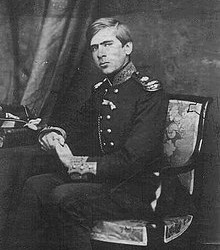
Josefina's strange case
In August 1855, just arrived from England and weeks from being acclaimed king of Portugal, D. Pedro V is surprised by the strange presence of a beautiful girl in his room in the Palácio das Necessidades. Young Josefina, daughter of one of the officers of the Paço secretariat, who lived in Rua do Livramento in Alcântara, cannot justify her presence in the King's private rooms.
The situation was embarrassing for both. The dubious intentions of a courtier interested in pending future benefits of the young monarch had forced poor Josefina into such an embarrassing position. Realizing the anguish of the young woman, already on the verge of tears, D. Pedro pretends, piously, to understand that she would have just been mistaken at the door.

The marriage with D. Estefânia
On April 29, 1858, D. Pedro V married Princess Estefânia de Hohenzollern-Sigmaringen by proxy, signed in Berlin, in the church of Santa Edviges. D. Estefânia was “found” by Queen Victoria of England who, therefore admiring D. Pedro V, searched among all the European royal houses for a bride at the height of the Portuguese King. The princess arrived in Portugal shortly after and, on May 18 of the same year, the royal bond was celebrated in Lisbon.

The sympathy and kindness of the new queen immediately captivated the Portuguese people. The king also fell in love with D. Estefânia, a love that was reciprocated by his wife, who returned his attentions with the statement that they were made for each other. However, this state of grace did not last long. On July 17, 1859, the young queen died of diphtheria, which caused a huge blow to the monarch.
The couple had no children and D. Pedro V did not remarry, leaving the succession issue unresolved. In honor of the beloved queen, the king founded, in Lisbon, the hospital that was named after his wife.
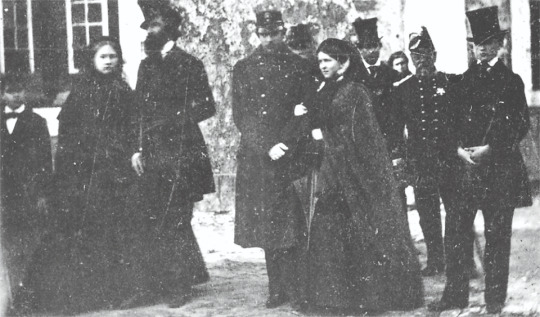
Love for the People
When the cholera epidemic (1855-56) spread through Lisbon, followed by yellow fever (this started in Porto,) part of the city's population flees to the province. D. Pedro not only refuses to leave the capital, but visits hospitals; he enters the wards and talks affectionately with the sick. Knowing that there are many orphaned children, he helps them, running the expenses out of his own pocket.
Alves Mendes, in “Oração Fúnebre”, in the funeral of the King, says at a certain step: “It is in a bucket that someone advises you to change the system. No! He said to his ministers: in the face of the crisis that decimates my people, it will not be my heart that rests, nor my arm that stops working! … ”

Premature death
In mid-1861, the King moved to Vila Viçosa. Then, for a short stay, he travels through several locations, being warmly received by the people. Arrived in Lisbon, he feels bad, and died, a few days later (November 11, 1861, at 7 pm) He died a widower and without children. In this way the reign of the Hopeful ended abruptly, the feeling remaining that, in addition to having lost a great man, the nation could not fully enjoy the governmental capabilities of the king of Portugal.
Alexandre Herculano, asserts that the King, had a pure soul and was of exceptional nobility. For all this he was known by the nickname "Very Beloved". For having loved so much: the Fatherland, and especially the humble people. It lies in the Royal Pantheon of the Bragança Dynasty, in the Monastery of São Vicente de Fora, in Lisbon. It is said, at his funeral, Alexandre Herculano would have cried like a child such was the disgust at prematurely losing his pupil.

6 notes
·
View notes
Text
hello!! Hi, my name is Lívia and I just joined the rp with Bella and George (floristtm).
fun little facts about me before we start this thing: from brasil, law student, have a dog that looks just like lady from lady and the tramp, thought dragons were real (but had gone extinct) until i was 15.

— ♔ In the past, people were born royal and for ISABELLA DE BRAGANÇA the TWENTY FIVE-year-old PRINCESS of BRAZILIAN EMPIRE, that is a tradition SHE intends to keep. To others, SHE looks an awful lot like VITORIA STRADA and has/have been painted as A SWEET SPOILED PRINCESS but behind closed doors, SHE is IMPATIENT and PETTY but also CHARISMATIC and CURIOUS. It has also been said they are NOT BETROTHED. (Lily. 23. BRST. She/Her)
let’s here some more about Bella under the cut:
FOR STARTERS! IF SHE TELLS YOUR CHARACTER TO CALL HER ISABELLA, PLEASE KNOW SHE ABSOLUTELY HATES THEM AND WANTS TO KILL THEM.
only goes by Bella.
Youngest of three kids, only daughter. She is very much the quintessential younger sister that was persecuted her whole life and never let it go. she can be quite petty, hold grudges like a queen, but she is also the friendliest freaking person you will ever meet. she likes to laugh and to be liked, but cross her once (even by accident) and you go into a burnbook.
FUN FACTS ABOUT BRASIL! DID YOU KNOW THERE WAS ACTUALLY A MONARCHY??? AND IN 1993 THERE WAS A VOTE ON WHETHER THEY WOULD BE BROUGHT BACK TO RULE? yes, during most of the 18th century, Brasil was ruled by the Bragança family, first Pedro I,who then left to fight his brother in Portugal, starting a regency period that would end when his 15 year old son assumed the throne. Bella is descended from Vassouras Branch of the Imperial Family, from the house of Orleães-Bragança. But yeah, monarchy existed, it was peacefully abolished in the 1880′s.
back to Bella, she is a very active person and the idea of being cooked up without being able to explore and travel absolutely kills her. She is always traveling, she sticks mostly inside of her own borders but before the kidnapping of the other royals, she was always going farther and farther away, expanding her horizons.
after though, her parents limited her to the south-east part of the country
kind of flirtatious but tends to not mean anything by it. its her way of having fun, of charming people.
connections with other characters we can plot.
princess gang!! princess gang!!! look, im just saying, there needs to be a princess girl gang that’s like super supportive of each other.
i can show you the world!! gimme a shy muse that bella can champion! she will try to push them to do more stuff, talk to more people, be more extroverted!! bonus points if the other muse is older and is just like: stop talking to me like a child. bella *pets* i’ll help you.
kissing means nothing. girls and boys, do you see how pretty bella is? do you want to be someone she has kissed to piss off her parents??
#﹙ i'm forever a child looking out my window at the night sky ╳ about. ﹚#wor.intro#i love her more than life thanks
2 notes
·
View notes
Text

&&. announcing her royal highness, ( ariel celine di savoia de bragança ), the ( 25 ) year old ( princess ) of ( portugal ). she is often confused with ( emma mackey ). some say that she is ( decadent & spoilt ), but she is actually ( warm & contemplative ). ( ariel ) is arranged to marry ( any male fc ). ( OOC: rae )
i made one (1) page in preparation, here it is. other than that, hit read more. please like or comment if you wanna plot!!
BIO
there’s not too many things to complain about when you’re beautiful, loved, and filthy rich. her family is as tight-knit as can be, and ariel is so damn spoilt that she could hardly do anything for herself until university, which was the best rude awakening a girl could ask for. she went to rome for university to study comparative literature and art history.
unlike what her parents predicted, she loved living on her own, loved the lived-in sort of mess that made a place a home. ariel kept pots of flowers on every available surface, next to them, stacks and stacks of books with scribbles all over the margins. she picked up painting ( after she dated a pretentious sculptor that she fell head over heels for ) and soon her flat was filled with half-coloured canvases. she owns a french press and makes coffee every morning while she smokes on her veranda, and god, she thinks she could live like this forever.
but she graduated, and she cried at the thought of leaving her comfortable little bubble -- it’s time for her to rejoin her world. to wash the acrylic paint off her fingers and have someone else make her coffee instead. but she was spoilt, and with one adorable whining tantrum and a decisive pout of her lips, her parents agreed that she could travel before settling into being a full-time princess.
so she took off to the capitals of the world. ariel stayed at the plaza in new york, soaking up the culture and going to more broadway plays that would last her a lifetime. she rented out a small flat in london’s core, watching big ben chime from her window as she went to art shows and poetry readings. paris, moscow, seoul, reykjavik, hong kong, and many, many more -- she collected postcards and sent each of her siblings colourful descriptions of her days.
but it all came to a shrieking halt. ariel was in madrid for a friend’s book launch, and the last thing she remembered from that evening was hailing a cab just outside the gallery where the event was held. the next thing she knew, she was laying on a bed that wasn’t her own, in a room she didn’t recognise. it was then did the nightmare began.
considering everything, they had kept her well-fed and comfortable. of course, she was kept against her will by strange men who scarcely spoke a word to her in a place she did not know. but they supplied her with decent food, and even a stack of paper and a pen for her to pass the time. the windows were boarded up, but she could sometimes see sunlight streaming through -- oh how she had yearned to feel the warmth on her face once more.
two weeks later she was released. blindfolded and bound before pushed into a car to an unknown location. when she opened her eyes, she saw the familiar face of the head of her father’s security; and she finally broke down in shuddering sobs. they took her on a plane and gently told her that she was in spain, that it was a few wayward spanish nobles that had kept her under lock and key. her heart broke, and she cried some more -- far too many questions in her mind.
she was enveloped in her mother’s arms as soon as the plane touched her homeland, and her tears mixed in with the queen’s, hurt and relief leaving her shoulders at last. ariel knew nothing but comfort and pampering in her first few months back in portugal, shielded from the issues of the world as she curled up alone in her bed, awake at all hours of the night as her room in spain swam into her mind every time she closed her eyes. ariel cried too much, jumped too often at sudden sounds, it broke her parents hearts.
but soon after, the monarchs of the world were shipped off to remote locations for their protection, war at their front steps. ariel shook and shuddered, not ready to leave the comforts of her home -- one that she just started to become comfortable in again -- and her parents felt the same. instead of sending her off with her siblings, ariel was sent to the countryside safe house surrounded by a slew of bodyguards and a full team of household staff. she’d like to keep a full house of familiar faces, and being without her siblings was hard, her nights spent facetiming barbie or biel, hiding her tears and curling up under the covers after the dial tone faded away.
so she spent her days reading and gardening, slowly becoming herself as she sent her maids for acrylic paints and different sized canvases. her live-in psychiatrist keeping a close watch as slowly, the light began to seep back into her eyes. her mother would visit for an extended period of time, holding her hand as she explained the latest patch of flowers in the gardens.
slowly, her family sent her to her cousins in italy, a little way of easing her back into the way of things, back to their norm -- slowly, she began to open her suitcase after months of disuse.
but that was then, and this is now. it’s been over two years since the incident, and the king and queen had finally decided that it’s time for their youngest daughter to perform her duties. with barbara’s blooming family and gabriel’s marriage, ariel was next, and there’s no stopping the constant burden of time.
4 notes
·
View notes
Text
Les Mis Brasil - my review (LONG POST - MIGHT AS WELL BE THE BRICK)
So, about a month ago I went to São Paulo to watch the brazilian Les Mis. It’s the second time in sixteen years that the show is performed here and I was more than excited to watch it, since Les Mis was my first musical, and my favourite one as well. I wanted to make this post a while ago, but I got lazy, so why the hell not do it now.
As soon as I walked into the theatre I felt my knees getting weak and my heart beating faster. I swear I was about to cry even before it started. This was the third Broadway musical I ever watched live, and my expectations were really high. I wasn’t dissapointed - though I must admit that it was not perfect.
First of all, the song’s adaptation to portuguese was incredible. I was afraid they were going to screw up with the translations (like they did with Rocky Horror) but I was pleasently surprised to discover that the translations were actually pretty damn good. Some of them were more literal, and sticked to the original english lyrics (Look Down, for example, was very literal), and while others did change a bit from the original, their emotion and meaning was still the same (On My Own was one of those that had some parts distant from the original, but with the same intense feeling and meaning). Two songs I did not enjoy were Stars and Bring Him Home. Both of them were quite astray from the original, and in those cases, it did bother me a bit, because they became vague and not as impressive (those are probably two of the most meaningful songs of the musical, and loosing that did cause some damage - I’ll get to that in a minute). Specifically for Bring Him Home, I simply couldn’t understand what the actor was singing - and he was the brazilian actor, Leo Wagner and not Daniel Diges, the spanish actor who also plays Valjean here.
One of the things that this version brought to us and I don’t think was very clear on other editions of Les Mis was the parallels between Fantine (Kacau Gomes, who I believe was the best choice for the role. Her voice is soothing, pleasent, very maternal sounding) and Éponine (Laura Lobos, who played little Cosette at the first edition of the musical here). Both of them suffer from a frustrated love, in very different manners, didn’t live wealthy lives and also had a great attatchment to Cosette - willingly or not, both their deaths had to do with granting Cosette a happier life. And in the translations of their songs, there were some phrases or sentences that were repeated, and for me, as a fan of both the book and the musica, that was deeply satisfying and an interesting viewpoint. Also, both their ghosts greet Valjean when he dies, and I thought that was really nice - specially since Valjean and Éponine interact a bit. She is the one who delivers him Marius’s note from the barricade, and Valjean tells her to take care of herself.
Many things reminded me of the book. Marius (played by Filipe Bragança, who is only SIXTEEN years old) and Cosette (Clara Verdier) acted like very awkward teenagers when they first meet at the garden, and it was the cutest thing. Their chemistry was amazing, I almost forgot the actors weren’t actually a couple. Clara’s singing performance was a bit disappointing though. Her voice didn’t reach the high notes, that are very characteristic of her character, and that cause her to be off-key some times, which was noticed by many people I talked to.
The Thénardiers were the comic relief, as usual, but they were also the most constant villains - their evil side was very clear to us and it was quite scary how much we could actually sympathize with Mr. Thérnardier, due to the actor’s witty and amusing performance. He kinda reminded me of the hyenas from The Lion King, who were always afraid of Mufasa - whenever Valjean would speak his mind, Mr. Thénardier hided behind his wife. All their scenes were funny but also had a more serious, deep tone beneath it, and that’s the whole point of their characters in the book.
Now, focus on our favourite so called villain: Javert. Javert is the character we love to hate, and for me, he just didn’t do it in this version. He could sing very well, but his perfomance seemed kinda rushed at some moments. It happened very quick and we didn’t have time to appreciate his character’s purpose. “Stars”, which is the song in which we start to care and understand him a bit better, wasn’t very good as I already mentioned, and because of that his character just became sort of one-dimentioned and flat. The Confrontation scene was interesting, as were his other physical confronts with Valjean, because the actors would get very physically agressive and we could feel the tension. At times, they were yelling at each other and the whole theatre went silent. Those were certainly powerful moments I enjoyed. Javert’s suicide was a good scene/song too, because the actor expressed his emotions very passionately and it almost fixed the lack of empathy and interest during the previous scenes.
Let me please, highlight one of my favourite parts of the whole thing: The revolution. That has always been my favourite part of any Les Mis adaptation. And of course, my favourite character is Enjolras, and I was extremely excited to watch what they were going to do with my sweetheart.
Enjolras. Was. Fucking. Awesome.
The actor who plays him, Pedro Caetano, is basically what book-Enjolras should be: passionate, intense, idealistic, charismatic. As soon as he walked on stage, he caught everyone’s attention and he stole my poor heart. His voice fits the character perfectly and, should Hamilton for some miracle reason ever be translated and acted in Brazil, I want Pedro Caetano as Laurens. Not only does he look like Anthony Ramos, but his voice also resembles his. It’s like Aaron Tveit, Anthony Ramos and Daveed Diggs had a beautiful son. That was our Enjolras. He was not only the cold asshole that leads the revolution, he was also a friend to his fellows barricade boys. He seemed to care about every single one of them, and was basically restless during the whole thing. During Bring Him Home, while Valjean is singing, Enjolras could be seen sleeping standing up. He picked Gavroche up during Red and Black, and in his death, his body was put next to Gavroche’s in a wagon.
Also, GRANTAIRE. He is also one of my favourite character, and brazillian Grantaire was simply sad. There’s no other way of describing this portrayal of our drunk revolutionary: Grantaire was sad, depressed even. His skepticism was clear throughout all the songs, he just sat in a corner, drank and made annoyed/sarcastic faces while Enjolras talked (also- Grantaire standed very close to Enjolras during the entire Red and Black, quietly hoping for his attention). Drink With Me is one hell of a song, and Bruno Girst (the actor who was performing Grantaire the day I saw it) did a great job making me cry like a baby. He sang his lines not as someone who was in love and realised he was going to loose his muse in a few hours. No, he was angry at Enjolras, but yet hated himself for not being able to disobey him. I could have sworn they were going to start a fist fight during that song, because as Grantaire is singing “Will the world remember you as you fall/Could it be your death means nothing at all?”, Enjolras approaches him looking pissed and three guys have to hold them so that they don’t punch each other. Right after that, Enjolras goes to talk to Grantaire, calmer and worried, but Grantaire just runs to the corner of the stage and fucking weaps. And you know what’s best? Gavroche is the one holding Grantaire and comforting him.
Also, kudos for Gavroche! That kid was AMAZING! He showed his middle finger to Javert, Grantaire and Enjolras basically act like his dads during the entire play. When Éponine dies, he stands beside her with Grantaire. He takes her little hat and gives it to Marius. The revolutionaries sing “We’ll fight for Éponine”, and that’s when I started crying and I didn’t stop until I was inside the taxi going back to my hotel. Gavroche’s death was pretty impactful, as usual, specially beacause it was Grantaire who cared for him, and Taire just holds Gavroche’s body during half of the battle scene, before laying him down, still weeping, and going back to fight.
As I mentioned, the actor who plays Marius is sixteen. He does look older, and his voice is very deep for a 16 year old, but he was great in the role. It somehow made the whole thing sadder - during Empty Chairs at Empty Tables, we can see how hurt he is, yet he is very young. It’s the very impact we get from his character in the book and it was heartbreaking. Also, in the translation, he sings “My friends, don’t fade away”, as the ghosts of the revolutionaries blow out their candles (I couldn’t stop thinking about Rent during that scene, but that’s off topic).
Well, that’s basically what I have to say in the more technical/deep analysis of the play. Now, some random notes:
- Master of the House was downright dirty. Lots of cursing and bad words that made me laugh like an idiot. Madame Thénardier makes lots of dick jokes and says that Mr Thénardier has a “butthole brain”. Classic Thénardier.
- Éponine kicks Montparnasse in the balls. Twice. Great hommage to book Éponine.
- Cosette and Éponine quickly interact at the garden.
- One Day More gave me the chills. I thought I was going to faint, it was SOOO GOOD.
- A weird/questionable translation during Drink With Me was right at the first verses. The boys sang “Here’s a toast to the lips I’ve kissed/ Here’s a toast to the breasts I’ve touched” and I was almost laughing because that’s SO RANDOM AND YET WEIRDLY ACCURATE. Though I can’t imagine Prouvaire grabbing a girl’s boobs.
- Do You Hear The People Sing was split between all of the ABC’s friends, not focused only on Enjolras, and it was quite awesome.
- “Grantaire, put the bottle down” changed to “Grantaire, STOP DRINKING!”
- Honestly, Pedro Caetano is one of my favourite Enjolras. I reccomend you follow his instagram because he is a beautiful guy and very talanted too.
- Actually, the whole cast is adorable. They hang out together and are basically the Modern AU I dreamed of.
#les mis#les misérables#les mis brasil#les miserables brasil#teatro renault#t4f#enjoltaire#enjolras#grantaire#fantine#gavroche#jean valjean#éponine#cosette#marius pontmercy#musicals#review#my posts#personal#me#long post
18 notes
·
View notes
Text
Ready! Set! Match!:| Self Para
Kalina sat holding her daughter while watching the game. Her new nation was playing today and she had to show her support even if they didn’t know that she was watching. Kalina urged that Miguel go to Rostov to see Brazil play against Switzerland. The people needed to see him and she assured him that she would be okay and that he could support his country. Especially with Bulgaria not participating, it was important that he was there, this was the first game. She would take care of their daughter and he would show face. She was going to be alone with her daughter for two days, she was nervous to allow him to go, but she refused to allow herself to live in fear, she had to be brave and allow him to do so too. With the rumors running rampant about speculation of the baby being born, everyone was clamoring to see the royals wanting to know about Kalina and the baby. With them keeping the gender a secret and not telling the world what they thought about naming their child. Kalina alluding to something perhaps biblical or after her husband’s late father. They were salivating for any baby information. The rumors said that the baby’s name was Isabel, Pedro or Miguel II to be called Miguelito by the citizens and Mikhail by Kalina.
Little did they know that her baby was a little girl named Gabriela Micaela Yuliana Demetria Katerina, first of her name of the Most Serene House Bragança. Born of love and peace between between Kalina and Miguel, she was uncorrupted, thus her Gavriila. The baby had such a pure smile, Kalina knew she right to name her daughter after her husband. She was enamored with her child, with the help of the nannies, she would get up to feed baby Ganya but they would handle the diapers during the day, working with Kalina to help get her on a schedule with her child. Kalina depended on them as she refused to allow Miguel to help at night, he needed to rest as he did the work to prepare for the coronation and taking over his mother’s roles. She would give him time to bond with her everyday, giving her a break to parlay in politics in person. With her personal assistant trained, she was constantly coming back and forth to bring her information to allow her to work without leaving her child’s side. She needed to work or she would have lost her mind from just sitting there staring at her little star baby. She was loved that her daughter provided the perfect excuse of her being able to sleep when she wanted, and her daughter used all of her energy that she would’ve demanded her husband use. She was tired from trying to not fall behind but also be a dutiful mother and trying to see to her husband the best that she could without being sexual like they use to do. Nowadays she was content laying on him skin to skin, staying there until she had to get up to feed her child. In that week, she found herself bringing her daughter back to bed with her, laying the child against Miguel watching them both sleep ever so peacefully. The baby could be feeling fussy in need of a burp but would simmer down her cries in Miguel’s arms, astonishing the nanny’s. Kalina loved watching him with the baby as he would rock her to sleep, her heart would swell watching them, occasionally seeing him sleep in the rocking chair. She didn’t tell him that she was counting down to July 24 when she could be intimate with him. Seeing the way he cared about the little girl reassured everything that she considered when she decided to marry him. The way he didn’t want to go, fighting her on going to see his team go win for them, how he been back for months now, since March but he still didn’t want to leave her, she would have loved to gone to Rostov but she knew that would definitely prompt Dimitri and Zoe to come to see her and her baby was only a week. Baby Gabriela needed her to stay more than anyone else.
Kalina motioned for Xhana to set up the iPad as Lucena-Marie brought Kalina a blanket and a towel, holding the towel. “FaceTime my husband will you.” She said to the girl in Bulgarian, she was use to talking to her daughter in her Language, she promised herself that she would try to break herself of the habit but she couldn’t help it. She smiled to Baby Gabriela, kissing her face as the iPad rang, waiting for her husband to answer. She adjusted herself to allow her daughter to take her breast, her daughter was awake for the first time in a while and ready to eat. Kalina smiled knowing Miguel would be happy to see his wife and his child bonding while he was gone. She could see the love in his face, she gave him the weird parent update of how was the baby’s poop, as it was how the doctor told her to check the baby’s health. She wanted him to make faces at her when she finished nursing so Baby Ganya would learn his face. She learned it was important that they had their face in her face a lot of time while she was awake. The little hair baby’s had after coming out of the womb was slowly starting to dissipate making her feel happier as she was worried it would stay. Kalina informed Miguel of how well she and the baby were doing doing and how she couldn’t wait for the game to be over so he could come home to her and his suckling daughter. She showed him how she was getting better at preparing then latching the baby so she could feed. She made him promise to stay on call until the baby had her milky smile and eyes shut. That was the quickest ways to get baby Gabriela asleep. She was happy that with them allowing her baby’s ears pierced at birth, she wanted Miguel to have one of his men sneak off during the middle of the match to go get small little earring with the hamsa on it, she was petrified of the evil eye looking down on her baby. It was a Bulgarian tradition that people spit on baby’s while saying ‘may the chicken poop in you’ as protective measures to keep the baby from being taken by the devil, so it was often whenever Kalina, Violeta, Iliana, Eva, Sofia, Iliya or Sasha where holding or near the baby to look at her face, they would imitate spitting on her face with only Kalina actually spitting on the baby, rubbing it in on her face. She forbade anyone to say anything out loud about how great or beautiful or anything good about baby Gabriela until after she was Christened and had protective measures for it was only so long before the Brazilians couldn’t handle keeping their little comments in about how she was such a sweet baby. She also planned to take the umbilical cord that was still attached to Baby Gabriela and throwing it at Miguel’s throne so that it was fate that his daughter take his throne. She told him of her plans to have her family to fly in that Thursday pfor she needed her family there when the christened the child. She would want to name Larissa as God Mother and as a show of good faith, Viktor as God Father unless Miguel had a better idea of who. She reminded him how it had to be ten days after and with Brazil playing Costa Rica that day, people would be expecting him there to cheer on his team so he can finally confirm that the baby was in fact born and how he needed to stay with his wife this time. She promised him that she would let him have the morning to watch the game with his daughter there beside him so he could have his hands to cheer. She promised him with every win, he would have something waiting for him. She is didn’t complain about exhaustion as she cared for her daughter late at night, she wasn’t use to being up so late constantly nor only having only naps. She hated the Bulgarian traditions that she had to be isolated from Sunset to Sunrise without her nannies til July 22, six weeks postpartum. It was her traditions and she had to follow them. It was why she refused Miguel’s help at night.
Kalina allowed Miguel to go, missing him already, this was his second call since he left, she found it hard to let him go, missing him but she was able to see that he was okay and that’s what mattered most to her. Her feelings had to be put to the side, it was a good look at the soon to be Emperor. She wanted to make sure it showed that he was dynamic, with an Empress by his side and an new born heir. She agreed to him going away only once but after his plane crash, she made sure that he wore his nazar bracelet that she gave him. She knew he thought it was silly but the action made her feel better, she didn’t feel comfortable with him leaving the city let alone getting on a plane. She shoved a rosary in his pants pocket on edge about him leaving, she needed something to reaffirm her faith that he would come back. She could feel her child sleeping against her chest, she was to make her feel calm while her husband was gone. She closed her eyes unconsciously following suit from her daughter, falling asleep in the rocking chair.
She was awakened to the a soft shake on her shoulder, it was time for the Brazil versus Switzerland game, she was going to support her newest nation with her child swaddled in the nation’s flag colors, silently Kalina was going to cheer for them, she was the outsider with no other royals there, only other person was Isabel, her mother-in-law but Kalina never felt like she could reach out to her. She treated Kalina like she was just there. Kalina didn’t get her, there was something off but she didn’t know she what. “Ganya, this is your first FIFA, when baba isn’t here, we are team Bulgaria, but we didn’t make it so we go to the back up, Brazil! Look there is baba, hi baba!” She said taking her daughter’s hand waving to the TV. She reached out to him, missing him. She was ready for him to come home, she was tired and wanted to be wrapped in his arms, it was how she could be intimate when she was healing from having her daughter. She kissed her daughter’s head, amused by the game. She didn’t want to wake the child so she tried to confine her excitement but as the game got more exciting she had Carina come to pick up her baby, to place in the swing seat for infants after burping her so that Kalina can watch the game. “Carina, please move the seat closer to me. No, get the Egg DoDo baby basket instead, she can sleep in that instead.” Kalina wanted her daughter with her as she was enjoying her first FIFA game since being stuck on the island. She thought back to then, back then she was dating her first love but was spending so much time with Miguel, four years ago the day her daughter was born, he gifted her a pearl with a letter she still had. It had such a sweet yet horrible message, it made her blush when she was alone reading it, to think he was getting all flustered to the point she could tell through his writing, it was something that suggest he could be the one. She remembered how she felt hurt that he said he didn’t want to see her again that he didn’t care about her but then made her feel wanted, a feeling that he shouldn’t have been able to cause if her boyfriend at the time was her one. She realized his actions and what he said never would line up. He could say he hated her and that she was disrespectful but his actions showed he longed for her and that’s what she followed. From his gift giving to the way he would get her riled up then sexual frustrated. It was that FIFA match that told her that Miguel might not say how he felt but it wasn’t just sexual attraction with him. He didn’t press up against her, simply gave her a gift and spoke to her. They shared things with one another and it was sweet. It was moments like those that she began to fall for him, slowly to the point that she didn’t notice until the was about to loose him after he gave her what he wanted. Four years later and she was married to him now with his daughter. She touched her necklace, that pearl was around her neck now. Something simple that she could wear when she missed him. The cheering pulled her from her thoughts as she looked to see that Brazil scored the first goal. She rubbed her daughter’s head. “Daddy looks actually happy in Russia, Coutinho shot the first goal, the stadium is lit up, that goal was sensational my little star.” She pulled the crib closer to her, she picked up her daughter’s little hand as she stared at her. It was something she couldn’t stop doing, Gabriela did that to people. Miguel did it too, she was their little miracle. But she wasn’t the only one who thought she was great, her staff did too, she wanted her mother to see the blessings she received and Ivana to hold her niece. “You’re the first grandchild of the Koháry, unless Viktor has a child out there that he created while super high and doesn’t know of. But when your grandmother sees you, she will see I can be great.” She confided in her child. She looked back to the screen. Her daughter was her her distraction and her weakness. She almost missed that Switzerland received the first yellow card. “No! Ganya that jackass clipped Neymar!” She groaned. She picked up her chotki, she needed him to be okay. She was anxious, awaiting the halftime so she could call her husband.
The half time began and Kalina pulled out her phone calling her husband. She bounced her legs, she wanted him to come home now, wanting to crawl into his arms to rest before his child would wake up crying in need of a clean diaper before eating more. She needed her husband to keep her feeling up. She felt like a milk machine and laying in his arms, she was reminded that he found her attractive. She reassured him that he was going to be have a very good birthday for being patient. They couldn’t have sex till July 22nd, only limited to Oral sex and even then he was only limited to her clitoris and other external areas. With the help of the nannies, she was able to find some time to rest so that she could make him feel appreciative and the intimacy to make sure they remained strong. “Hello my love, yes, I saw that goal. Yes, I was upset to see Neymar get clipped, makes me miss the wildness from that one France game, remember that assault, he hit that guy in his head with his head. Yeah it’s not lady like for me to say that, but still…Brazil has to show we are strong…yeah we….I’m going to be their empress, your queen. She is currently milk drunk fast asleep, she was sitting in the room with me as I watched. She looks like she needs her baba home soon. Maybe even skin to skin bonding time. I know I want that. I can’t wait for you to come home. I miss you, love you too my love, tchau.” She said, smiling at her phone, she grabbed her baby, kissing his child’s face. She cradled the baby, she was what got her through the long period with Miguel being missing. She looked at her baby as her blessing. She started to smell something fouls, it made her scrunch up her nose, she took her child to the changing table in the room. Lucena came trying to take over. “Su Majestad, let me take that, I can handle that dirty diaper, you go, the game is starting back up. I will handle la pequeña princesa.” Lucena said to Kalina in Spanish, making her grin. Kalina rubbed the girl’s arm, she was a subject of the duchy her mother gave her and going to handle the poop, allowing Kalina to rest. It was rare that they were allowed to do things like that, she would send them to take care of Alma, or see to the little girl’s laundry and assisting Kalina including the little things like looking in on her or playing classical music. Even occasionally bouncing her around when Kalina was too tired to move. “You’re rooting for Spain this year? I hope Brazil will be able to play Spain in a very good game.” She said smiling in Spanish to the girl. Spanish was her second language and she spoke it like her mother and her people. Lucena smiled laying the crying infant down. “Mi reina, you talk big game but that’s a win, with for you, mi duquesa.” She teased, a win for spain was a win for Granada and that was a win for Princesa Kalina. Kalina chuckled going back to sit down. When she looked back at the tv she saw Switzerland had scored and she scowled. She knew Miguel had to been cussing up a storm, this wasn’t a good look, Brazil couldn’t loose, not today. She fought the need to pull up his image, this was her first time openly supporting Brazil and are tied with Switzerland. She was disappointed and that feeling lasted till the end of the game. She was appreciative of Lucena helping out. She stood up, snapping a picture of the sleeping baby before sending it to Miguel with the caption saying, ‘Your family misses you. We are going to take a nap. Call when you are half way home. Don’t be gone too long. Your wife longs for you.’
#para#self para#she is like I WANT MY HUSBAND#but she knows he has to be great but she also is tired and feels like a baby buffet#and he makes her feel like a woman so she wants him#ready to throw him some neeeeeeck
0 notes
Text
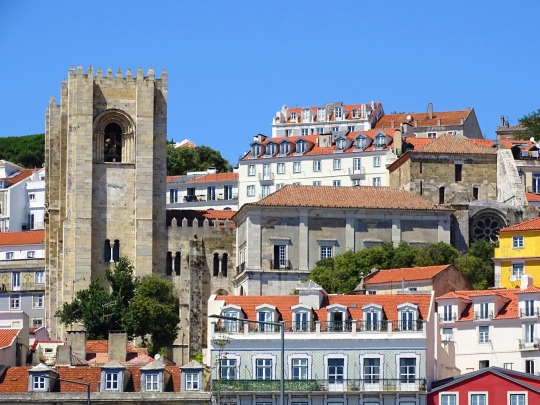


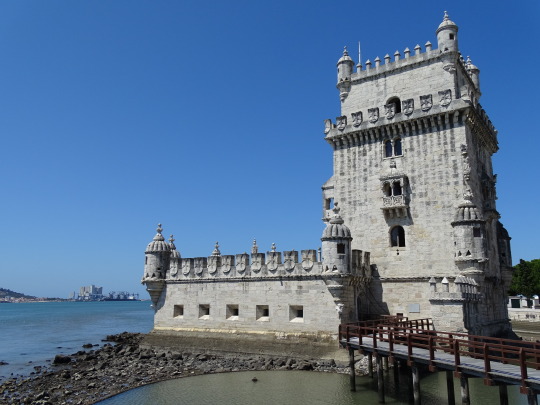
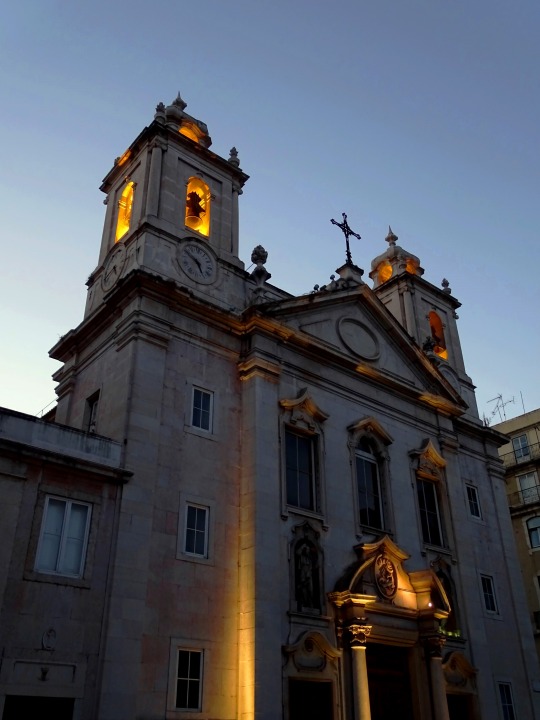
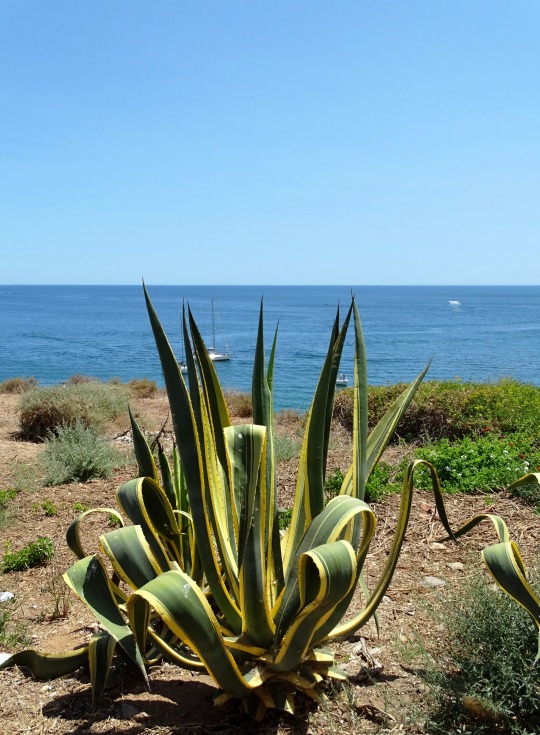
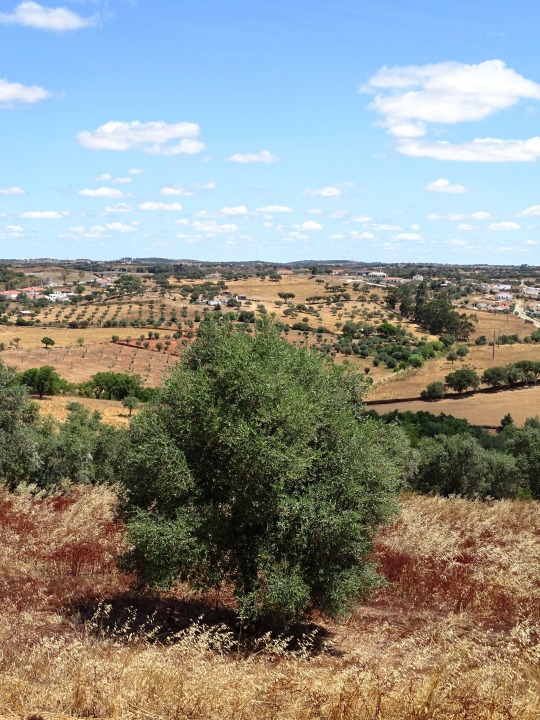

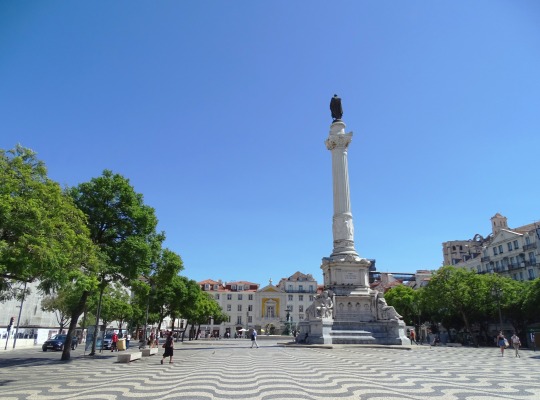
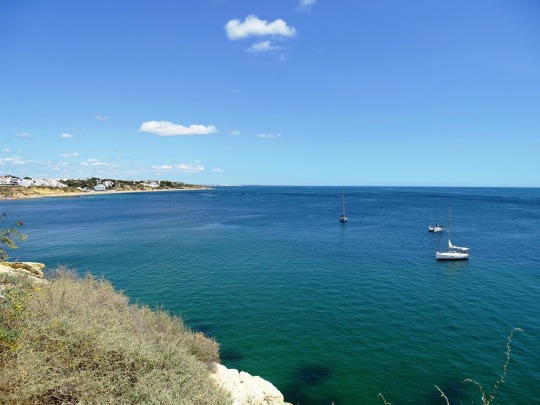

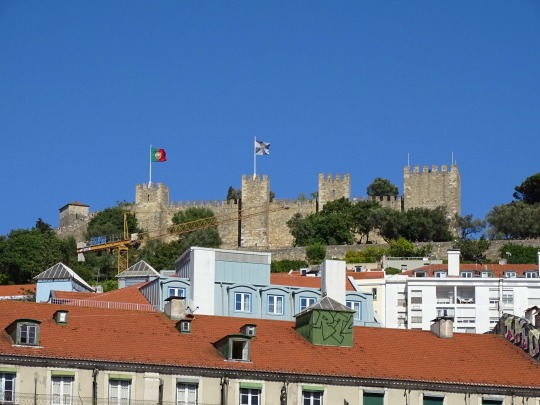
In a revolution in Portugal the monarchy was overthrown and a republic was declared on October 5, 1910.
Portugal Republic Day
Portugal’s Republic Day is celebrated on October 5 every year and is also known as ‘Implantation of the Republic’ in Portugal. This important day marks the overthrow of the monarchy, the House of Braganca, in 1910. The monarchy had been in power since the 11th century and was replaced by a republican form of government in a bloodless revolution. It also brought about civil and religious liberties. It is a public holiday with schools, state offices, and some restaurants being closed. Like other public holidays in Portugal, Republic Day is not moved to a weekday if it falls on a weekend.
History of Portugal Republic Day
Portugal’s Republic Day commemorates the deposition of the centuries-old Portuguese monarchy and the establishment of the First Portuguese Republic. It was the result of a coup led by the “Portuguese Republican Party.”
By 1910, the Portuguese Kingdom was in the middle of a crisis with people increasingly resenting the royal family due to the 1890 British Ultimatum which demanded the retreat of the Portuguese military forces from the territory between the colonies of Angola and Mozambique, the royal family’s expenses, the assassination of the King and his heir, transforming religious and social views, instability of political parties, Joao Franco’s dictatorship, and the regime’s inability to adapt to modern times. This national anger helped proponents of the Republican Party to take advantage of the situation. The party skillfully presented itself as the only one capable of returning the country to its original glorious status and advancing its progress.
The military was reluctant to fight the nearly two thousand soldiers and sailors that rebelled between October 3 and 4, and so the Republic was proclaimed the next day from the Lisbon City Hall. A provisional government led by Teófilo Braga led the country till the Constitution was approved, marking the beginning of the First Republic. National symbols like the national anthem and the flag were changed, along with some changes in civil and religious liberties.
The deposed King Manuel II departed from Ericeira and lived out the rest of his days in exile. At the time, Portugal was worried about being recognized by other countries as most European states were monarchies. But soon enough, through skillful diplomacy by the Foreign Affairs Minister, the country was officially recognized by the United Kingdom, France, China, Spain, Italy, Russia, and others.
Portugal Republic Day timeline
1143 Treaty of Zamora
Afonso Henriques — also known as Afonso I —is proclaimed the First King of Portugal.
1500 The Discovery of Brazil
Pedro Álvares Cabral sets sail seeking to reach India but a storm changes his course and he lands in South America.
1908 Regicide
King Charles and his son and heir Prince Luís Filipe of Bragança are assassinated in Lisbon.
1910 The Republic Party Takes Over
The monarchy is abolished and a republican government is formed.
Portugal Republic Day FAQs
What languages are spoken in Portugal?
Portuguese is the common language of the country and is the most widely spoken. English is the second most spoken language as Portugal regularly attracts international visitors from the United States, U.K. as well as the rest of Europe.
Is Portugal expensive to visit?
Portugal is among the least expensive holiday destinations in Western Europe and will set you back around 68 to 115 euros per person for each day. It’s a great holiday place if you’re looking to make a trip on a budget as it’s much cheaper than many European options.
What food is Portugal known for?
Seafood and pork are popular foods in Portugal. Some of the must-have dishes are bacalhau or salted cod, custard tart, Iberian black pork, duck rice, grilled sardines, steak sandwich, and seafood stew just to list a few. Did you know tempura was actually invented by the Portuguese? Another reason to love this place!
How to Observe Portugal Republic Day
Visit Portugal
Immerse yourself in the culture
Throw a party
Visit Portugal to celebrate its Republic Day and honor the people who struggled to bring about a revolution. Enjoy the celebrations at the Lisbon City Hall, wave the flag, go sightseeing and join in on the fun.
Bring Portugal to you if you can’t visit the country by immersing yourself in its vibrant culture. Read some Portuguese literature, watch some movies and cook some delicious traditional Portuguese food.
Show your national pride by throwing a party to celebrate Republic Day. Light up the sky with some fireworks and remark on the years of effort and struggle that have made the nation it is today.
5 Facts About Portugal That Will Blow Your Mind
It’s amongst the oldest nations in Europe
It’s one of the most peaceful countries
England is its oldest friend
One of the worst disasters
First place to ban life imprisonment
It’s been constantly inhabited since prehistoric times by the Celts, Carthaginians, and Romans just to name a few.
It has a low crime rate, high standard of living, and a high average life expectancy too.
Portugal signed the “Treaty of Windsor” with England in 1386 — which is probably the longest-running alliance between modern nations.
An extremely violent earthquake of a magnitude of 8.5 to nine befell Lisbon in 1755, causing a widespread fire and a huge tsunami that nearly wiped out the city.
It abolished life imprisonment in 1884 and no one has been executed for a crime since 1846.
Why Portugal Republic Day is Important
It marks the overthrowing of the monarchy
National pride
It was a bloodless revolution
The people of Portugal were growing increasingly resentful of the monarchy for various reasons. The revolution finally put an end to it and paved the way for a different form of government.
It’s a great day to show off your pride in being Portuguese. Take this day to immerse yourself in your culture and learn more about the many events that have made Portugal the great nation it is today.
It’s commendable to note that unlike many other coups and revolutions in the region, the event involved no bloodshed. This serves as an important lesson even in today’s day and age that not all revolutions need casualties.
Source
#revolution#republic#declared#5 October 1910#anniversary#Lisbon#Lisboa#Lisbon Cathedral#Portuguese history#Albufeira#summer 2021#Portugal Republic Day#Azulejo#Belém Tower#Atlantic Ocean#Ourique#landscape#cityscape#seascape#Rossio#D. Maria II National Theatre#Igreja de São Paulo#tourist attraction#original photography#São Jorge Castle
0 notes
Photo

Did You Know: The House of Bragança Edition #2
“Within days of his abdication on 7 April 1831, D. Pedro I sailed away taking with him Maria da Gloria, the young queen of Portugal, and his new wife Amélia of Leuchtenberg. He did not even say goodbye to his son, who woke to find his father gone. The little emperor was left with his two elder sisters, Francisca and Januária, but otherwise with no family.” (p. 300, The Braganzas The Rise and Fall of the Ruling Dynasties of Portugal and Brazil, 1640–1910, Malyn Newitt)
It is said that the abandonment left a deep scar on young Pedro II, though he never accused his father of having deserted him. Before the Emperor’s departure to Portugal, he had appointed a tutor, an official guardian, and a regency for his son until he became of age.
#reason no. I've honestly lost count of why I don't like Pedro I#poor Pedro II#it wasn't your fault kid#:(#Did You Know: The House of Bragança#pedro ii of brazil#pedro i of brazil#Brazil#Brazilian history#my entries
15 notes
·
View notes
Photo

Did You Know: The House of Bragança Edition #1
Over the years, the Portuguese Royal Family had had to resort to papal-condoned incest (e.g. marriages between cousins, nieces and uncles, aunts and nephews) to avoid the possibility of foreign interference or the succession of a foreigner to the Portuguese throne.
Between the 18th and 19th century, several of such marriages occurred:
1. D. Maria I (1734 - 1816) married her uncle, Pedro III; 2. D. Jose, Prince of Brazil (1761 - 1788) married his aunt, Infanta Benedita of Portugal; 3. D. Maria II (1819 - 1953) married her step-uncle, the brother of her father’s second wife, Augusto of Leuchtenberg; 4. Maria Isabel (1797 - 1818) married her uncle, Ferdinand VII of Spain; 5. Infanta Maria Francisca (1800 - 1834) married her uncle, Infante Carlos María Isidro of Spain; 6. Infanta Maria Teresa (1793 - 1874) married her cousin, Infante Pedro Carlos of Spain and Portugal.
I did not include D. Miguel (1802 - 1866) who was engaged to his niece but did not marry her.
Fun fact: Did you know that both the Braganças and the Targaryens display dragons on their coat of arms? (¬ε¬)
#we're all waiting for the crossover to happen already haha#Portugal#portuguese history#house of braganza#house of bragança#Did You Know: The House of Bragança#the start of a new series ; )#my entries
12 notes
·
View notes
Photo

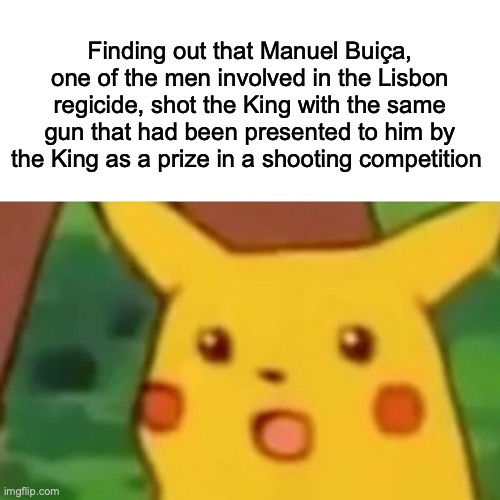

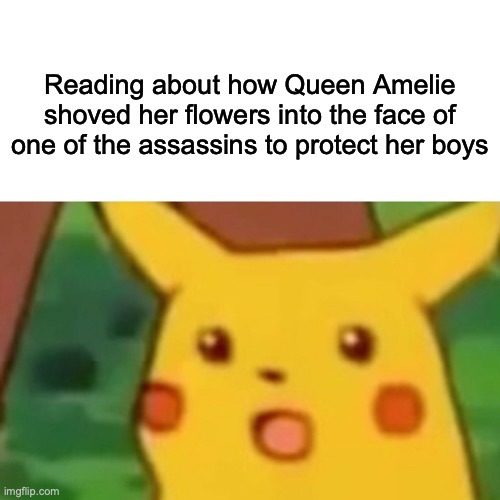

Did You Know: The House of Bragança Edition #5
To say that Lucien Corpechot’s memoir of the regicide is shocking is an understatement. The following paragraphs are from The Braganzas: The Rise and Fall of the Ruling Dynasties of Portugal and Brazil, 1640–1910 by Malyn Newitt.
2) “The two men who had fired at the royal family were Alfredo Costa, a salesman, and Manuel Buiça, a teacher and skilled marksman known personally by the king, who had presented him with his gun as a prize in a shooting competition.” (p. 283)
3 & 4) “Without warning, a number of shots were fired, killing the king and wounding the Crown Prince. One of the murderers stepped up onto the coach and the Crown Prince, Luís Filipe, although wounded, drew his own revolver and fired four shots. The queen, armed only with a bouquet of flowers, thrust it into the face of the killer. The second assassin now mounted the step of the coach and fired into the face of Luís Filipe, mortally wounding him. Further shots wounded the infante Manuel.” (p. 283)
5) “A week after the murders, the king and his son received a state funeral with all the magnificent but antique ceremonial that for centuries had marked the key moments in the lives of the Braganza monarchs. Contemporaries, however, remarked that there was no great concern expressed in Lisbon after the initial shock. Monarchs around the world expressed horror and outrage, but this was not reflected in the reaction inside Portugal.” (p. 285)
#Portugal#Portuguese history#Did You Know: The House of Bragança#and I think that this might be the last of the series (for now)#I'll surely come across something else that will make me lose my mind#house of braganza#house of bragança#the scene was really shocking#and this is coming from someone whose country killed its last communist leader on Christmas Day#exile would have been fine really : (#in both cases#my entries
5 notes
·
View notes
Photo
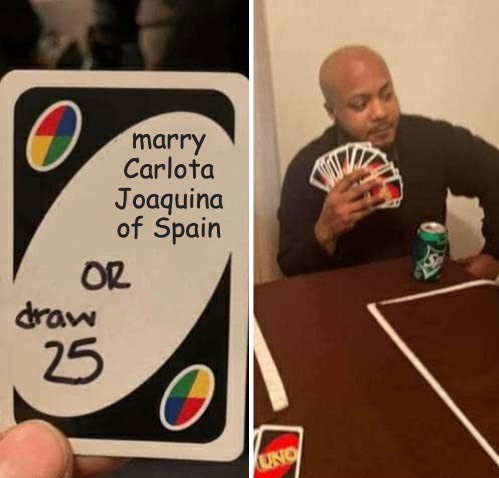
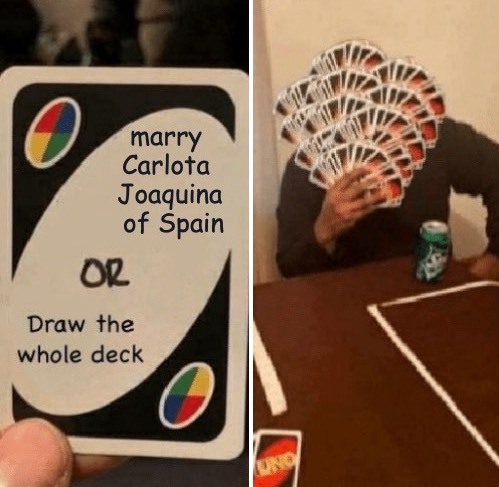
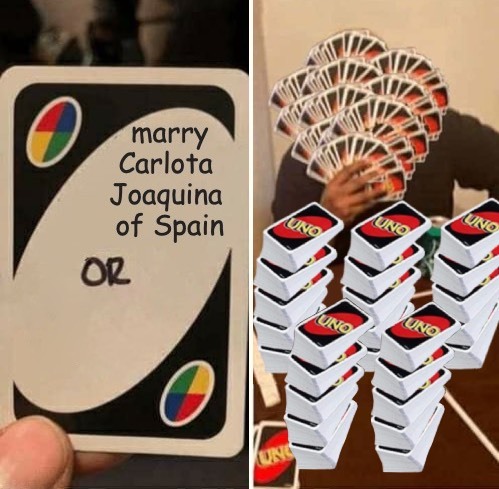
Did You Know: The House of Bragança Edition #6
“De Espanha nem bom vento, nem bom casamento” (Neither good winds nor good marriages come from Spain), but nothing could have prepared Portugal for this Spanish spouse.
Doña Carlota Joaquina was the wife of D. João VI of Portugal and Queen of Portugal between 1785 and 1826. As the oldest surviving child of King Charles IV of Spain, she was married to D. João when she was only 10 while D. João was 18.
Despite any initial affection that might have existed between the king and the young queen, most of their relationship was characterised by deep hostility and paranoia.
Throughout her life, Carlota had plotted to have her husband declared insane like his mother, D. Maria I, so that she would become regent. D. João eventually discovered her plot against him, and put a stop to it.
Aside from her scheming personality and loathing for her husband, Carlota’s unattractive appearance did not help her reputation. The Portuguese Court’s initial reaction to her small body was: “We sent them a fish and they sent us a sardine!” (p.179). The fish in question was Infanta Maria Vitoria of Portugal who married the Spanish Infante Gabriel. The double marriage was meant to better the diplomatic relationship between Spain and Portugal.
Unfortunately, Carlota had only reaped the antipathy of the Portuguese Court and people for her eccentricity, promiscuity, scheming personality. She also meddled in Portuguese politics, oftentimes in opposition to her husband.
This goes to show that the first Portuguese saying as well as the Spanish saying “Mejor amancebada que mal casada” (It is better to be a concubine than badly married) holds a lot of truth.
#Did You Know: The House of Bragança#carlota joaquina of spain#carlota joaquina#house of bragança#house of braganza#Portugal#Portuguese history#she's the villain that Hollywood movies and telenovelas NEED#D. João VI#my entries
4 notes
·
View notes
Photo


Did You Know: The House of Bragança Edition #3
D. Pedro’s eldest daughter, D. Isabel, became heir to the Brazilian throne after her brother died in 1850. Despite being an intelligent woman with a strong character, she was unable to partake in Brazil’s politics due to her patriarchal father and society.
After the outbreak of the American Civil War in 1861, unrest spilled over into Brazil, threatening to tear it apart over the question of slavery. Isabel sought to abolish it once and for all.
In 1888, during her regency, she signed the Golden Law which abolished slavery in all forms. This feat was greater than the 1871 Free Womb Law, which emancipated all children born to enslaved women.
After the monarchy was abolished and Isabel was exiled, she reportedly told a friend that “if abolition is the cause for this, I don’t regret it; I consider it worth losing the throne for.” (p. 317, The Braganzas: The Rise and Fall of the Ruling Dynasties of Portugal and Brazil, 1640–1910, Malyn Newitt)
#heck yeah#IT'S MY GIRL ISABEL!#princess imperial of brazil#isabel princess imperial of brazil#D. Isabel#isabel of braganza#Isabel the Redemptress#Did You Know: The House of Bragança#serves Pedro right :<#no but in reality Pedro DID pave the path towards the abolition of slavery#but it was his daughter who stood up to the plantation owners and signed the emancipation into law#she would have been a great empress#perhaps#one thing is for sure#she was a remarkably intelligent and brave woman#my entries
3 notes
·
View notes
Photo


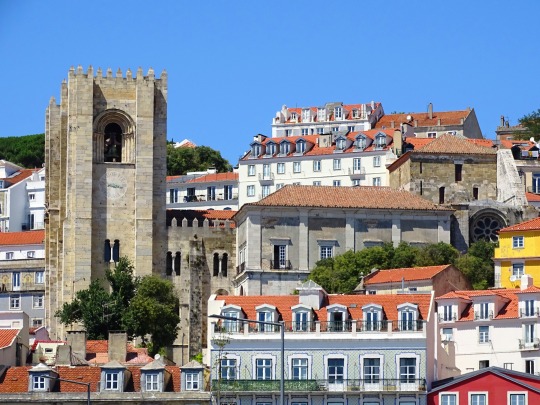





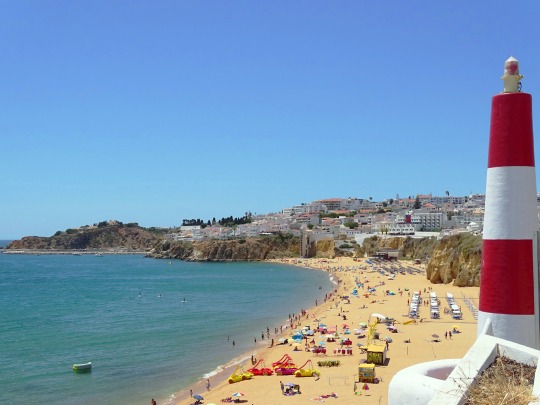
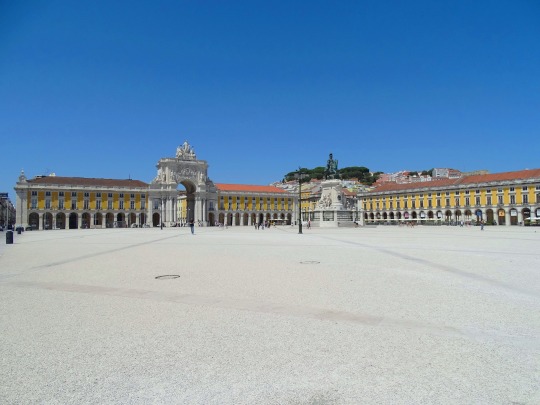
In a revolution in Portugal the monarchy was overthrown and a republic was declared on October 5, 1910.
Portugal Republic Day
Portugal’s Republic Day is celebrated on October 5 every year and is also known as ‘Implantation of the Republic’ in Portugal. This important day marks the overthrow of the monarchy, the House of Braganca, in 1910. The monarchy had been in power since the 11th century and was replaced by a republican form of government in a bloodless revolution. It also brought about civil and religious liberties. It is a public holiday with schools, state offices, and some restaurants being closed. Like other public holidays in Portugal, Republic Day is not moved to a weekday if it falls on a weekend.
History of Portugal Republic Day
Portugal’s Republic Day commemorates the deposition of the centuries-old Portuguese monarchy and the establishment of the First Portuguese Republic. It was the result of a coup led by the “Portuguese Republican Party.”
By 1910, the Portuguese Kingdom was in the middle of a crisis with people increasingly resenting the royal family due to the 1890 British Ultimatum which demanded the retreat of the Portuguese military forces from the territory between the colonies of Angola and Mozambique, the royal family’s expenses, the assassination of the King and his heir, transforming religious and social views, instability of political parties, Joao Franco’s dictatorship, and the regime’s inability to adapt to modern times. This national anger helped proponents of the Republican Party to take advantage of the situation. The party skillfully presented itself as the only one capable of returning the country to its original glorious status and advancing its progress.
The military was reluctant to fight the nearly two thousand soldiers and sailors that rebelled between October 3 and 4, and so the Republic was proclaimed the next day from the Lisbon City Hall. A provisional government led by Teófilo Braga led the country till the Constitution was approved, marking the beginning of the First Republic. National symbols like the national anthem and the flag were changed, along with some changes in civil and religious liberties.
The deposed King Manuel II departed from Ericeira and lived out the rest of his days in exile. At the time, Portugal was worried about being recognized by other countries as most European states were monarchies. But soon enough, through skillful diplomacy by the Foreign Affairs Minister, the country was officially recognized by the United Kingdom, France, China, Spain, Italy, Russia, and others.
Portugal Republic Day timeline
1143 Treaty of Zamora
Afonso Henriques — also known as Afonso I —is proclaimed the First King of Portugal.
1500 The Discovery of Brazil
Pedro Álvares Cabral sets sail seeking to reach India but a storm changes his course and he lands in South America.
1908 Regicide
King Charles and his son and heir Prince Luís Filipe of Bragança are assassinated in Lisbon.
1910 The Republic Party Takes Over
The monarchy is abolished and a republican government is formed.
Portugal Republic Day FAQs
What languages are spoken in Portugal?
Portuguese is the common language of the country and is the most widely spoken. English is the second most spoken language as Portugal regularly attracts international visitors from the United States, U.K. as well as the rest of Europe.
Is Portugal expensive to visit?
Portugal is among the least expensive holiday destinations in Western Europe and will set you back around 68 to 115 euros per person for each day. It’s a great holiday place if you’re looking to make a trip on a budget as it’s much cheaper than many European options.
What food is Portugal known for?
Seafood and pork are popular foods in Portugal. Some of the must-have dishes are bacalhau or salted cod, custard tart, Iberian black pork, duck rice, grilled sardines, steak sandwich, and seafood stew just to list a few. Did you know tempura was actually invented by the Portuguese? Another reason to love this place!
How to Observe Portugal Republic Day
Visit Portugal
Immerse yourself in the culture
Throw a party
Visit Portugal to celebrate its Republic Day and honor the people who struggled to bring about a revolution. Enjoy the celebrations at the Lisbon City Hall, wave the flag, go sightseeing and join in on the fun.
Bring Portugal to you if you can’t visit the country by immersing yourself in its vibrant culture. Read some Portuguese literature, watch some movies and cook some delicious traditional Portuguese food.
Show your national pride by throwing a party to celebrate Republic Day. Light up the sky with some fireworks and remark on the years of effort and struggle that have made the nation it is today.
5 Facts About Portugal That Will Blow Your Mind
It’s amongst the oldest nations in Europe
It’s one of the most peaceful countries
England is its oldest friend
One of the worst disasters
First place to ban life imprisonment
It’s been constantly inhabited since prehistoric times by the Celts, Carthaginians, and Romans just to name a few.
It has a low crime rate, high standard of living, and a high average life expectancy too.
Portugal signed the “Treaty of Windsor” with England in 1386 — which is probably the longest-running alliance between modern nations.
An extremely violent earthquake of a magnitude of 8.5 to nine befell Lisbon in 1755, causing a widespread fire and a huge tsunami that nearly wiped out the city.
It abolished life imprisonment in 1884 and no one has been executed for a crime since 1846.
Why Portugal Republic Day is Important
It marks the overthrowing of the monarchy
National pride
It was a bloodless revolution
The people of Portugal were growing increasingly resentful of the monarchy for various reasons. The revolution finally put an end to it and paved the way for a different form of government.
It’s a great day to show off your pride in being Portuguese. Take this day to immerse yourself in your culture and learn more about the many events that have made Portugal the great nation it is today.
It’s commendable to note that unlike many other coups and revolutions in the region, the event involved no bloodshed. This serves as an important lesson even in today’s day and age that not all revolutions need casualties.
Source
#revolution#republic#declared#5 October 1910#anniversary#Lisbon#Lisboa#Lisbon Cathedral#Portuguese history#Albufeira#summer 2021#Portugal Republic Day#Azulejo#Belém Tower#Atlantic Ocean#Ourique#landscape#cityscape#seascape#Rossio#D. Maria II National Theatre#Igreja de São Paulo#Praça do Comércio#tourist attraction#original photography
2 notes
·
View notes